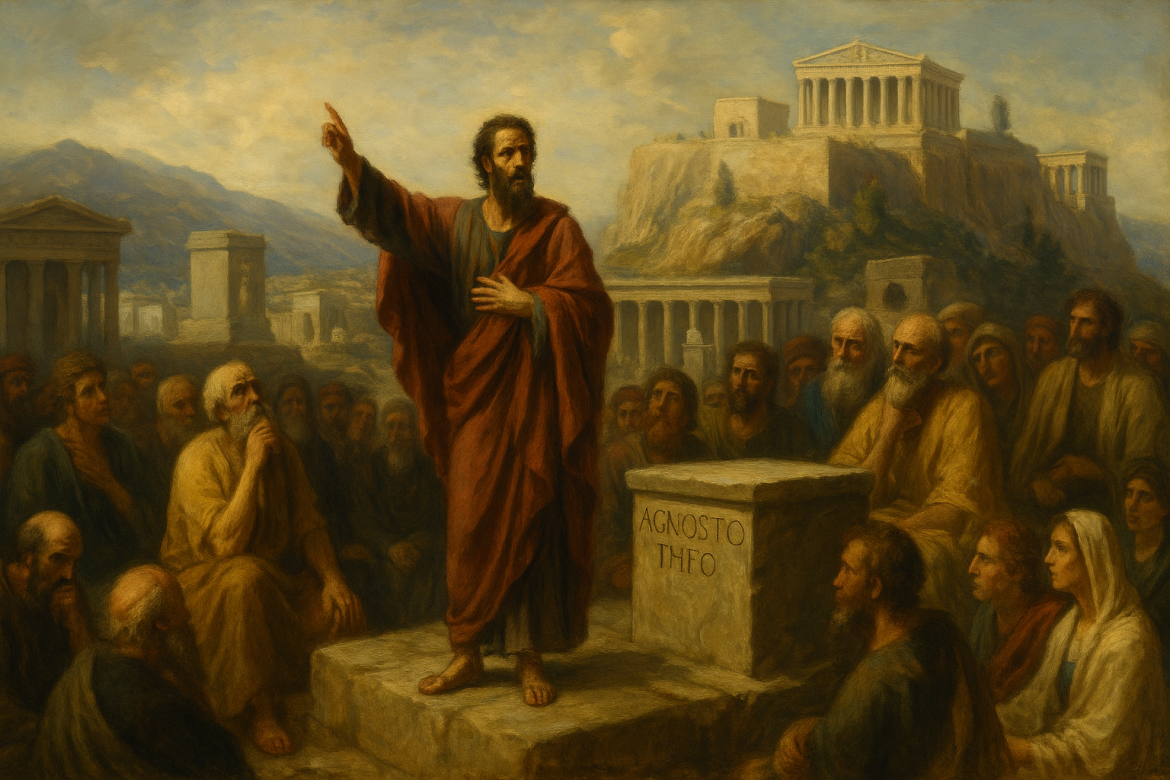In Acts 17, we follow Paul as he travels through Thessalonica, Berea, and Athens, sharing the message of Jesus Christ. Paul’s ability to adjust his approach depending on the audience is highlighted in this chapter, demonstrating both his intelligence and dedication to his mission.
Paul first visits Thessalonica, where he speaks to the Jewish community in the synagogues. Using the Old Testament, he attempts to persuade them that Jesus is the Messiah. However, resistance arises, and a mob is incited. Forced to flee, Paul and his companions move to Berea, where the people are more receptive, eagerly examining the scriptures to verify his teachings.
Next, Paul arrives in Athens, a city full of idols and known for its love of philosophy. Here, he takes a different approach. Rather than quoting Jewish scripture, he speaks in terms that would resonate with the Athenians, even referencing their altar “to an unknown god.” Paul explains that this unknown god is the one true God, creator of all things, and that Jesus Christ is the one whom God raised from the dead.
What stands out most is Paul’s ability to meet people where they are. He understands his audience and communicates the gospel in ways that they can understand, without compromising the truth. It’s a lesson in empathy, wisdom, and adaptability—qualities that made Paul one of the greatest missionaries in history.

